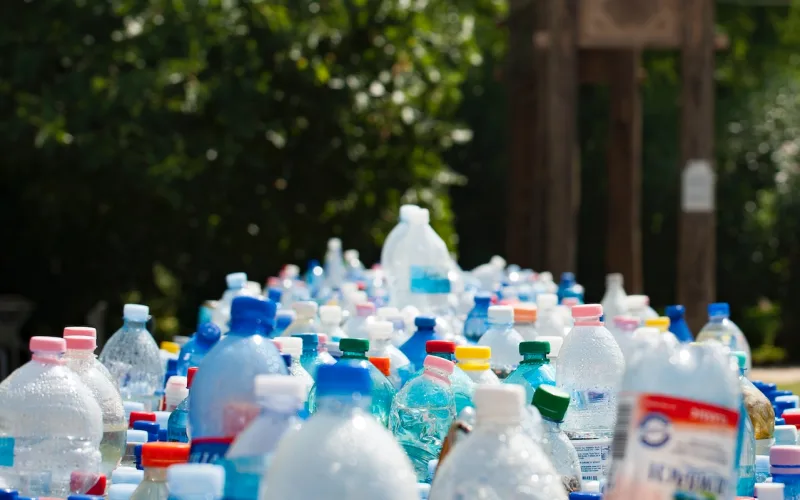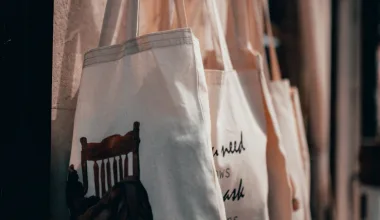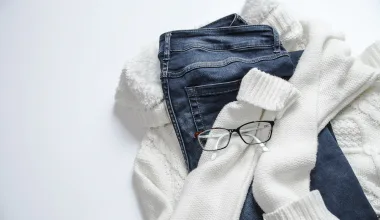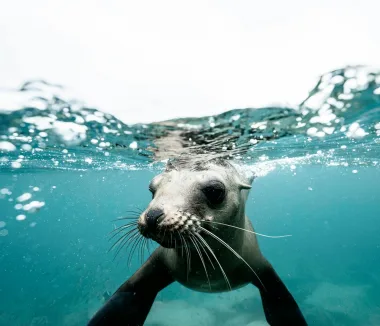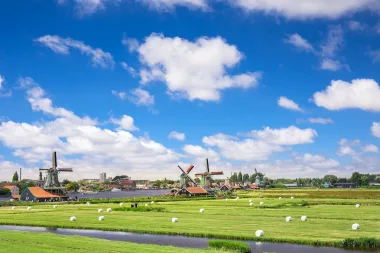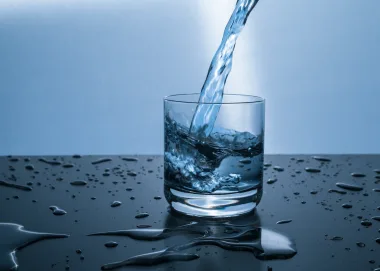Last Updated on May 14, 2024 by Ecologica Life
The world produces over 380 million tones of plastic each year. A significant portion of this ends up as waste. Less than 9% of all plastic gets recycled. The remainder either gets incinerated, goes into the ocean or is buried. This highlights the gravity of the plastic pollution problem.
Depending on where you live, you might find the plastic bags in the fruit aisle are biodegradable or compostable. Unfortunately, these terms may not mean what you think they mean.
Biodegradability doesn’t solve plastic pollution, and compostable doesn’t mean it’s suitable for your backyard.
In this article we will explore the facts and myths surrounding biodegradable plastic.
Bioplastics, Bio-based and Biodegradable
To discuss biodegradable plastics, we need to discuss some other terms first:
Bioplastics – Bioplastics can be divided into three categories: fossil-based (biodegradable), bio-based (biodegradable and non-biodegradable). Bioplastics is therefore a confusing term and so when you see it written on packaging, treat it with caution.
Bio-based plastic – refers to the renewable sources used to make the plastic. For example, processing sugar cane creates ethylene. This is then used to make non-biodegradable products like polyethylene (PE).
Processing starch can produce lactic acid and then polylactic acid (PLA), which is biodegradable. The properties of bio-based plastics can vary greatly from one material to another.
Biodegradable plastic – Can be biobased or fossil-based plastic. Biodegradable plastic refers to plastics that break down through biological (often microbial) action. Some biodegradable plastics – but not all – are compostable, meaning that they break down under controlled conditions.
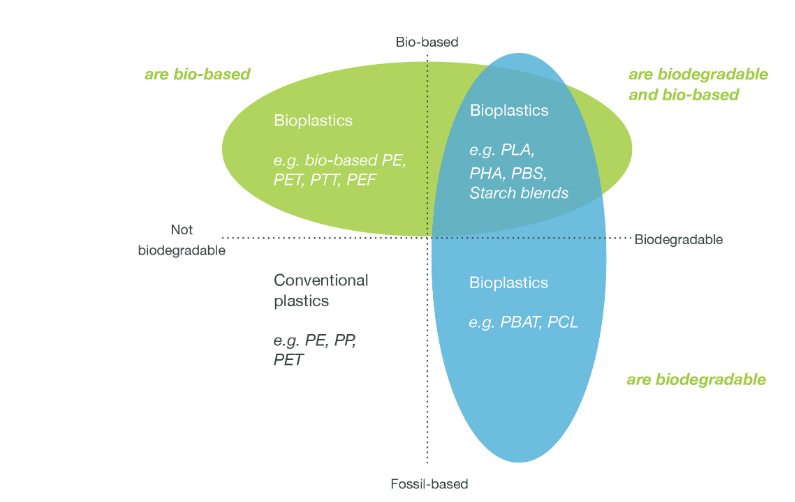
What are the Problems with Biodegradable Plastics?
Just because something is labelled as biodegradable or compostable does not mean you should compost it in your sustainable garden.
Proper handling of a product at the end of its life is crucial. A product being biodegradable doesn’t mean it will break down everywhere, it depends on the composting conditions.
In most cases, industrial composting under strict guidelines is required to ensure biodegradation within an acceptable period of time. According to European guidelines, materials must decompose within six months in industrial composting facilities. But it will take much longer in open spaces.
Biodegradability does not always mean that a product will decompose in any environment. Biodegradable polymers often only decompose in commercial composting facilities under specific conditions.
Temperature, time, humidity and the presence of bacteria and fungi in the environment are all elements that affect degradation. Only industrial composting facilities have the ability to control these variables.
Unfortunately, these facilities are not universally available, and many bioplastics end up in landfills where they do not decompose efficiently. In such conditions, they can generate methane, a potent greenhouse gas.
Nevertheless, some products might be suitable for home composting. Check the label on the food package for “Home compostable”, and if in doubt, do your research about the packaging.
The breakdown of bioplastics in the environment or in the home compost heats is highly variable and can take many years. The resulting fragments, while small, still exist as microplastics and can cause harm to the ecosystem.
Recycling Bioplastics
Bioplastics also pose a challenge in terms of recycling. Biodegradable and compostable plastics cannot be recycled together with conventional plastics because they can contaminate the recycling stream.
However, they often get mistakenly thrown into recycling bins due to the confusion caused by the terminology and labeling. As a result, it leads to increased costs and reduced efficiency of the recycling process.
Compostable Plastics Advantages
Using less plastic is a better option for the planet and our health. Biodegradable plastics aren’t the fix to humanity’s plastic problem.
There are many situations where biodegradable plastic can not be considered as a replacement for conventional plastic. However, good situations where compostable plastic can replace standard plastic include:
- Compostable bags to collect food scraps and organic waste.
- Disposable tableware is used in situations where reusable tableware is not feasible. These situations include rural events that lack electricity or water for dishwashers, as well as big exhibitions. Reusable is the main option for table service in restaurants, whereas compostable might be considered for street/finger food.
- Disaster relief operations.
- Coffee capsules (Although traditional ways of making coffee are a lot better for the planet) and tea bags.
Are Bioplastics Safe?
Plastics can contain a mixture of known and unknown compounds, some of which are toxic according to research done in 2019. Bioplastics (biobased and non-biobased) are being promoted as environmentally friendly replacements for traditional polymers.
Research from 2020 shows that bioplastics (biobased and non-biobased) are similarly toxic to traditional plastic. However, this research did reveal that some non-toxic products are available on the market.
This is especially important to consider when composting, as this can release toxins into the environment. Recycling can also be detrimental as using recycled plastic can release toxins which can damage our health.
The key is to use a little plastic in our lives as possible and reduce plastic waste. For many products this is unavoidable, but lifestyle changes and making smart consumer decisions can go a long way. You might even consider making your own tote bag or switching to a wooden toothbrush.
